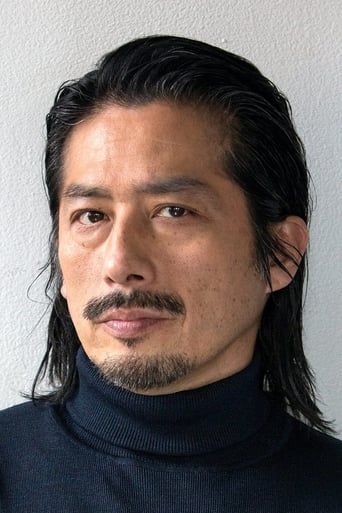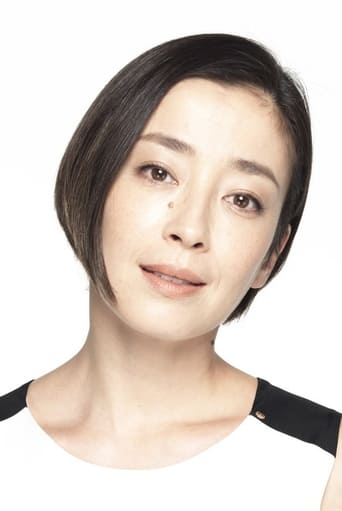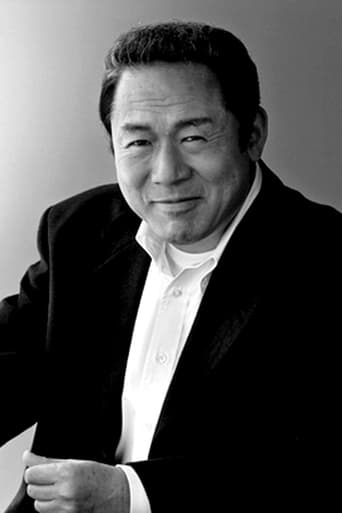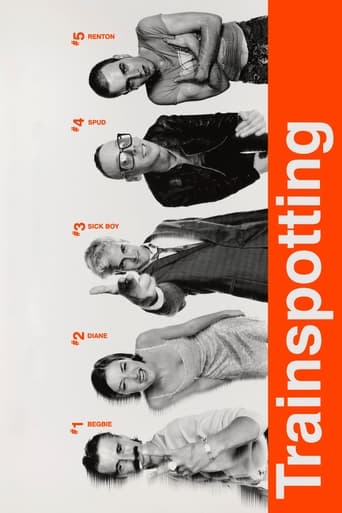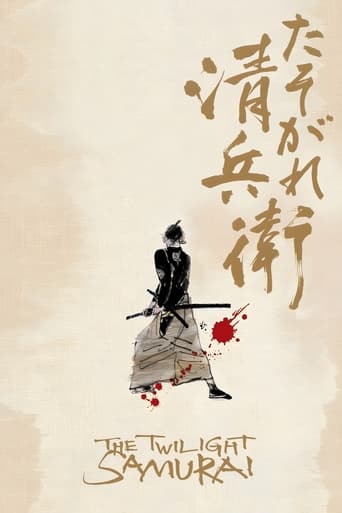

The Twilight Samurai (2004)
Seibei Iguchi leads a difficult life as a low ranking samurai at the turn of the nineteenth century. A widower with a meager income, Seibei struggles to take care of his two daughters and senile mother. New prospects seem to open up when the beautiful Tomoe, a childhood friend, comes back into he and his daughters' life, but as the Japanese feudal system unravels, Seibei is still bound by the code of honor of the samurai and by his own sense of social precedence. How can he find a way to do what is best for those he loves?
Watch Trailer
Cast


Similar titles
Reviews
Simply A Masterpiece
The plot isn't so bad, but the pace of storytelling is too slow which makes people bored. Certain moments are so obvious and unnecessary for the main plot. I would've fast-forwarded those moments if it was an online streaming. The ending looks like implying a sequel, not sure if this movie will get one
The story, direction, characters, and writing/dialogue is akin to taking a tranquilizer shot to the neck, but everything else was so well done.
It's simply great fun, a winsome film and an occasionally over-the-top luxury fantasy that never flags.
The Twilight Samurai is a story, set at the turn of the century, about a petty samurai father, Seibei (Sanada), narrated by his then five-year-old daughter. Seibei's wife died of consumption leaving him to care for his dementia stricken mother, and two daughters. Seibei is of the samurai class though he works as a bureaucrat in the castle stores for a meager salary. IMDb summarizes the film as, "A 19th-century samurai tries to protect a battered wife." This only a minor plot point in the film. We follow him as he experiences tests of character with regard to his desires, his aspirations, and his duties to the clan.Now, this may be an embarrassing testament to my general ignorance of international movies but I mistook this for another film. There is a popular samurai series about Zatoichi (aka "The Blind Swordsman") that follows the adventures of, as you can probably guess, a wandering Samurai who is blind. According to Wikipedia, a total of 26 films were made in the '60's featuring this character. I thought that The Twilight Samurai was that. Clearly, any samurai movie is an action movie, right? Sigh, it sounds even more embarrassing when I write it. In my defense, the film The Blind Swordsman: Zatoichi came out in 2003. The Twilight Samurai is, in fact, a serious and really good drama. It won just about every Japanese film award possible and it's not too surprising.The acting is fabulous, the cinematography is beautiful, and the music and sound are just as good. I'm generally not a fan of narration. "Show me, don't tell," I think when I hear a narrator but I've certainly heard worse narration than that of The Twilight Samurai's. I'm also generally not a fan of children in movies (read: I generally loathe them in movies) but Seibei's daughters are adorable. They play a large part in the motivations of Seibei but they don't play a large part in the movie. They are there just enough to work their way into your heart and make you sympathize with Seibei; one can understand why he wants to stay at home, take care of them, and watch them grow.Overall, The Twilight Samurai is a very good movie. To my chagrin, I went in expecting a hack and slash but was enthralled by the story presented in front of me. It's happy and sad at the same time, and despite being a very Japanese movie, as an American, I found it accessible. By accessible, I mean that some movies use specific of cultural cues that either go over my head or don't jive with my American state of mind. I'll get more into detail about what I mean but it requires giving away some spoilers. This all said, I'd recommend The Twilight Samurai to someone interested in watching a more serious movie about the self and society and family. The only reason why I didn't give it a four out of four is because of some details surrounding the ending (which I will discuss next). Now, mind yourself of spoilers from here on out.I mentioned that The Twilight Samurai was a very Japanese movie. In my experiences with Japanese movies, there are some recurring themes, namely, responsibility to one's duty particularly with respect to community versus the self. In The Twilight Samurai, we see this through Seibei and his interactions with his clan.A friend of Seibei comes back from Edo (the capital city which was later renamed Tokyo) and offers to take him there for a promotion. Seibei respectfully declines saying that his dream is to eventually give up the title of Samurai and become a farmer with his daughters; he doesn't want to rise up in class because he's happy and content. Despite this desire to become a farmer, he is tasked with the job of killing a criminal samurai. The criminal was ordered to commit suicide but didn't, saying, "If you want me dead, you'll have to do it yourself." The criminal samurai is the best one-sword fighter in the clan so it's a high-risk task. Seibei attempts to defer the "honor" or responsibility to someone else but, eventually, accepts because it's his duty to follow the orders of the clan. The film doesn't stop at the "following orders" image. He accepts the task reveals that he intended to provide a route for escape rather execution.A while ago, I reviewed The Shonen Merikansak. It's a movie about a washed-up punk band that reunites. The movie seemed say, "Yeah, I wanna rock, so let's rock." The last shot of the movie, however, undermines that whole message. It changes to "Yeah, I wanna rock, but let's be serious and get back to work after this bit of fun." The Twilight Samurai contains the theme of duty but still gives Seibei the strength to balance responsibility to one's post with responsibility to one's moral code. Seibei explains that he intended on letting the criminal escape to the mountains.Unfortunately, the film takes an easy way out. After all, what would happen if he let the guy escape? What type of repercussions would he face? If he said that he let the guy go, Seibei would totally be executed. Well, we don't have to worry about it because the criminal samurai says, "I will escape after I kill you." Conveniently, Seibei must defend himself and is thus rewarded with money, and his dream wife. Is it a deal breaker? No, but it feels like a little bit of a cop out
Told from the perspective of an impoverished samurai's daughter, the film becomes a study of a man of great character--meditative, caring for his two daughters and senile mother, reluctant to fight until ordered to by his clan. It develops slowly, with time to give dimensions to the main characters, and a sense of the daily lives of the minor characters. The care with which the characters are developed reminds me of Ozu's wonderful films. The contrasts between dark interiors and the sunlit landscapes enhances the sense that humans needlessly create suffering in such an environment. The "Twilight" in the title also indicates that in the 19th century, the various clans were breaking up,and the land was filled with wandering lord-less samurai, loyal only to themselves.
This is probably one of the best and touchable samurai movie I ever seen. Last Samurai with Tom Cruise? Forget it. Compare Tasogare is typical hollywoodish piece of sh... Even is nice to see, I have to admit. But Tasogare... That's model of perfection. Camera as perfect as in Blade Runner, music as great and gently as in A Beautiful Mind, Hiroyuki Sanada match this character as much as possible in actor ability is. There is very, very few things to complaint. Too plain story? Maybe, for some, but story in this movie is expressed in best way I ever seen. No spectacular "katana" fights? Ooh, there are plenty in countless another movies, you'll be overfilled of it. This one is about beauty, you probably never seen such way, not power of stunts or CGI. Enjoy it!
It is a samurai social drama and an amazing film. Simply wonderful. Film is slow paced and seemingly very little happens until you realize you have been completely engrossed in the life of a lesser Samurai in 19th century Japan. From that moment you relate to the period, the setting and the actions as if you were part of them. If you have an average or casual knowledge of what samurais really were this film will also serve you as a great history lesson. The Twilight Samurai will provide you with understanding of very much by showing you very little. It will not burden you with excessive information delivery but will instead simply tell a story and let you come to the conclusions on your own.


